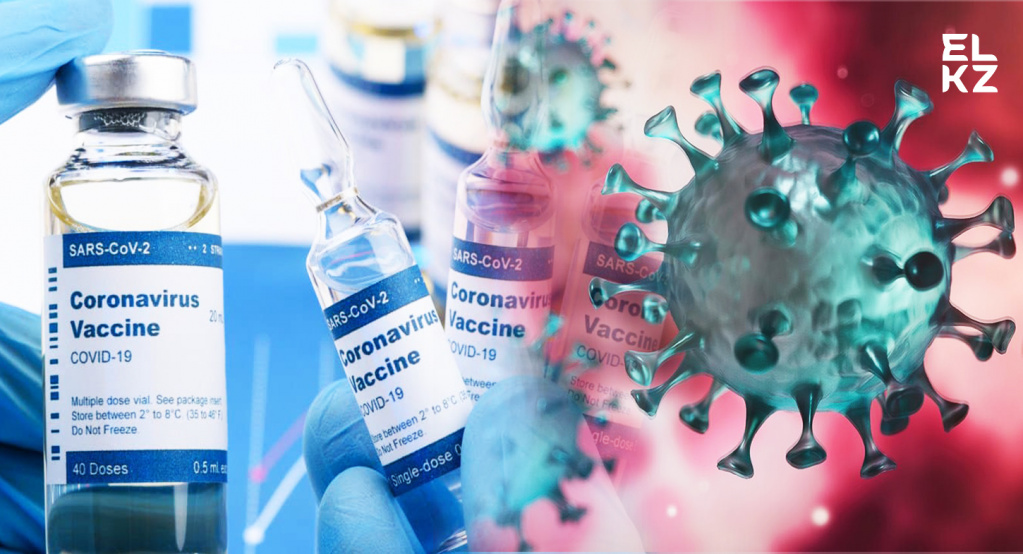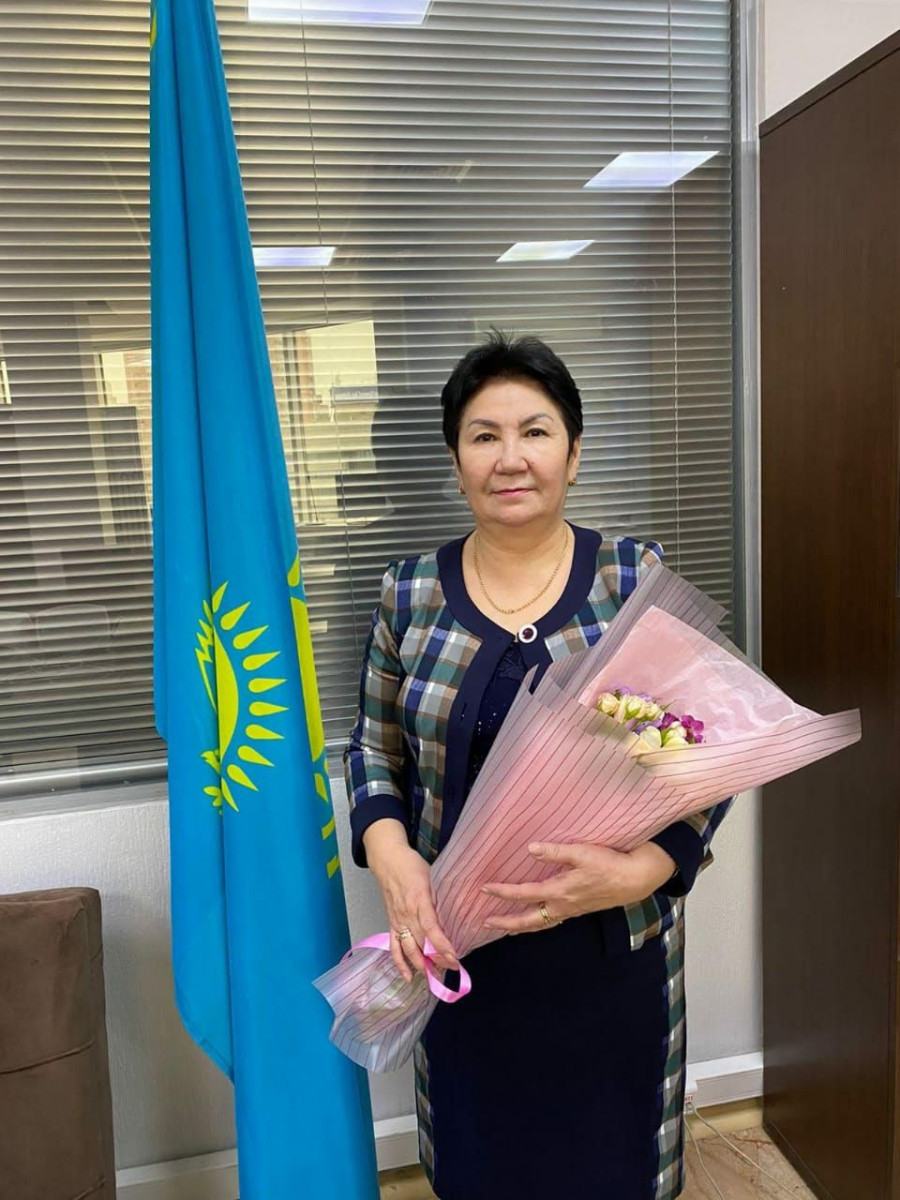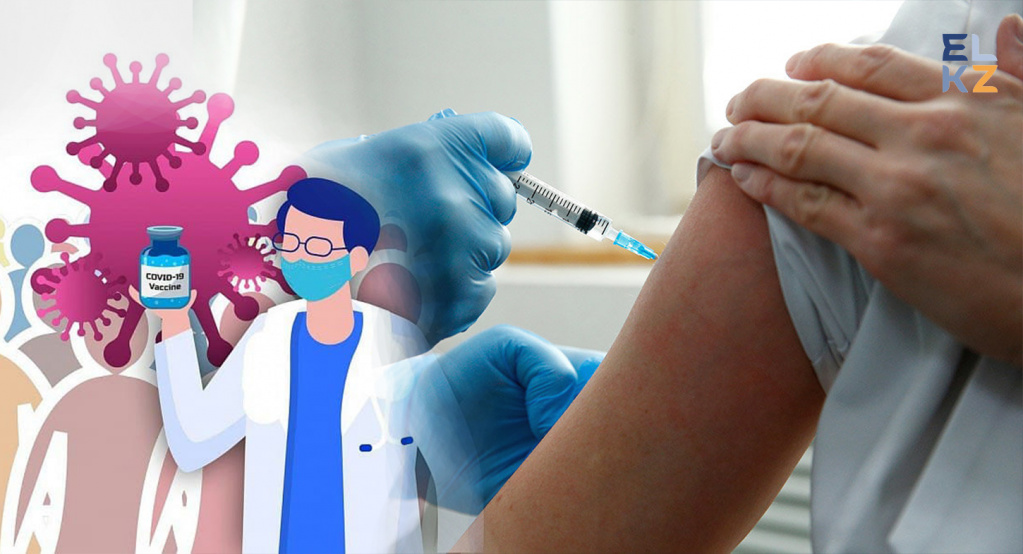What do you need to know about the revaccination in Kazakhstan?
Advantages of getting revaccinated
The pandemic that has shaken the entire world still remains unsolved. Minister of Health of the Republic of Kazakhstan Azhar Giniyat noted at a meeting of the government that the “Omicron” variant is spreading rapidly in Kazakhstan. In order to prevent the spread of the notorious epidemic, various vaccines against the coronavirus were invented, and an immunization campaign was held in our country. At present, those people who received both components of the vaccine should get the vaccination again after some time. There are several questions arising in this regard. For instance, “What is revaccination?” and “Why is it necessary?” In today's article, we interviewed the Head of the Department of Infectious Diseases Prevention of the National Center for Public Health under the Ministry of Health Botakoz Abdirova and investigated the necessity of revaccination.

Before exploring the concept of revaccination, we need to understand the general term of vaccination. Vaccination is a simple, safe, and effective way to protect people against disease before they come in contact with infectious agents. The vaccine contains only eliminated or attenuated strains of pathogens that do not cause disease and do not pose a risk of complications. It increases the body's resistance to infectious diseases and strengthens the immune system by using the natural defenses of the body. That means it directs the immune system to make special antibodies. The vaccinated person's immunity against the disease develops after 2-3 weeks and lasts for several years. Also, the risk of contracting the disease is reduced, which means that the spread of the disease to others is reduced as well. If more people in the community are vaccinated, the more collective immunity will be achieved. This slows down the spread of infectious diseases. Basically, this is the function of vaccination.
Revaccination is a repeated vaccination process aimed at maintaining the immunity obtained after vaccination. The procedure is also called a booster injection, “Enhancing”. Several studies have shown that immunity after vaccination decreases over time, and the injection should be repeated in order to remind it of the virus.
In Kazakhstan, a cross method of revaccination will be applied. This is when a vaccine is used as the third dose, which differs from the medication in the production technology that was used directly for vaccination. However, while revaccination with the same vaccine used for the primary vaccination course is allowed, experts believe that a cross-over method may provide more protection.
What do people need to know about the coronavirus revaccination?
According to the World Health Organization, as of January 26, 2022, the “Omicron” SARS-Cov-2 variant was detected in many countries around the world. The peculiarity of the strain “Omicron” is the high prevalence of infection and increased risk of re-infection. In the upper respiratory tract (where the virus enters first), the “Omicron” variant multiplies 70 times faster than the “Delta” variant. The main protection against infection is a completed course of vaccination and timely revaccination against COVID-19.
What should be considered before revaccination?
- “Nowadays, the season of influenza and acute viral infections has begun along with coronavirus infection. These viral diseases, which can affect people of any age, cause a serious threat to human life and health. That is why, it is important to prevent those diseases.
The only effective way to prevent these infections is to get vaccinated. If you have the flu or coronavirus infection, you shouldn`t self-medicate. The patient must call a doctor to the house and use the necessary treatment prescribed by the doctor. If the disease is treated quickly at the onset, it will not lead to whooping cough and other complications. People who have been vaccinated against the infection are more susceptible to the disease. Even when they become infected, they will have a lower risk of further complications and pneumonia,”– Botakoz Abdirova stated.

According to the National Center for Public Health of the Ministry of Health, the vaccine is not recommended for people with any chronic illness. People with an exacerbation or any other active infection with a fever should not be vaccinated. In case of exacerbation of chronic diseases, it is recommended to make the vaccine after 2-4 weeks of the recovery process or remission. It is compulsory to get a consultation from a doctor about this.
Are there any side effects to revaccination and how long does it last?
- “Most people who are vaccinated do not have any special symptoms. However, there might be slight pain, redness, swelling, and weakness at the injection site. Occasionally, there is a fever, chills, nausea, and swollen lymph nodes.
As with any medication, the coronavirus vaccines have their own indications. Each specific vaccine has its own list of contraindications. In addition, there may be individual intolerance to the components of a particular vaccine, but this is very rare. In this case, the medication is usually replaced” – Botakoz Abdirova noted.
Which vaccine should be chosen for the revaccination process? For example, can a person who has been vaccinated with “Sputnik” get “QazVac” or “Hayat-Vax”? Or should it be sown only by the same vaccine?

The Head of the Department of Infectious Diseases Prevention of the National Center for Public Health under the Ministry of Health, Botakoz Abdirova, explained the following rules:
- Taking into account international experience, an additional dose of the vaccine should be taken 6-9 months after the completion of a full course of vaccination against KVI;
- Individuals vaccinated with vector (Sputnik) vaccines should be inactivated after 9 months (with Sinopharm, CoronaVac, Hayat-Vax, QazVac) or get revaccinated with M-RNA vaccine (Pfizer);
- People who have received inactivated vaccines (Sinopharm, CoronaVac, Hayat-Vax, QazVac) must be revaccinated with vector vaccine (Sputnik) or M-RNA vaccine (Pfizer) after 6 months;
- For individuals vaccinated with the M-RNA vaccine (Pfizer), it is recommended to be revaccinated with inactivated vaccines (Sinopharm, CoronaVac, Hayat - Vax, QazVac) or vector (Sputnik) vaccine after 6 months.
Is it compulsory to get vaccinated with two doses during revaccination? Or just one dose? Why?
According to the Head of the Department of Infectious Diseases Prevention at the National Center for Public Health, the only way to protect against infection is the completed course of vaccination and a single timely revaccination against COVID-19.
Based on the dynamics of viral mutations and the experience of exploring the associated pathogens, revaccination is carried out, because immunity has not been maintained for a very long time.
The changes will also affect vaccination passports. One more line, which is the third dose, will appear in them, and it will be written in brackets (revaccination), indicating the date and name of the medication.
Will I need to go back to receive the COVID-19 vaccine in the future? The Ministry of Health is not ready to answer this question yet, as everything will depend on the course of the pandemic. Decisions may be revised in the process. So far, there is no clear criterion for how many doses will need to be received and for how long. Alternatively, citizens may be vaccinated against coronavirus in the same way that they are vaccinated against influenza, which means they will receive annual vaccinations in vulnerable categories prior to the start of the season.
(The picture of Botakoz Abdirova was taken from her personal archive)
 Subscribe to our Telegram channel and be the first to know the news!
Subscribe to our Telegram channel and be the first to know the news!